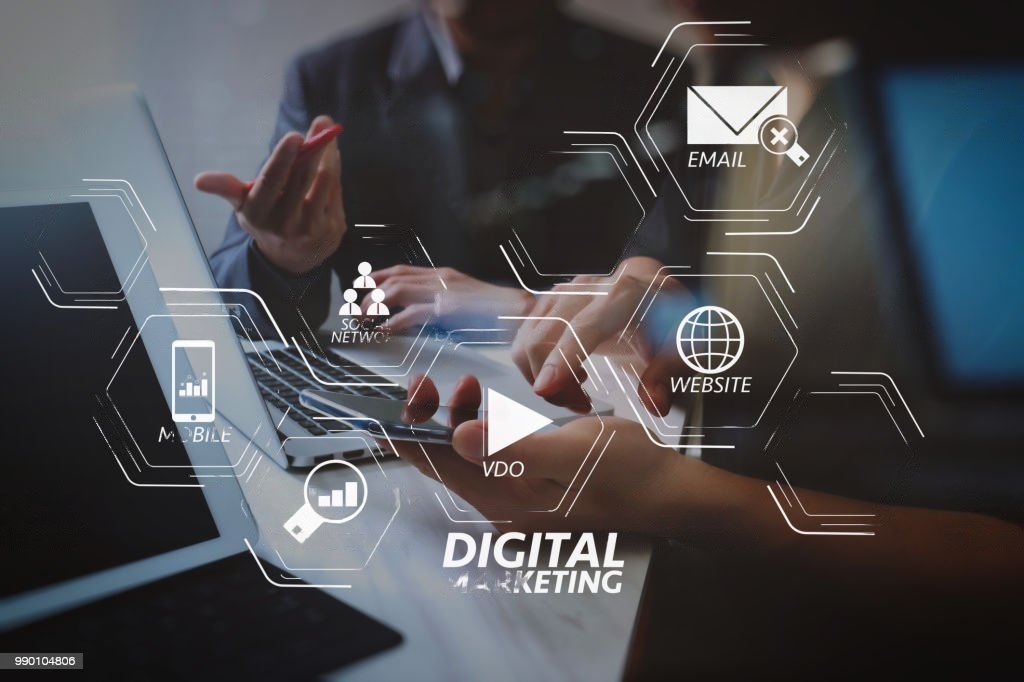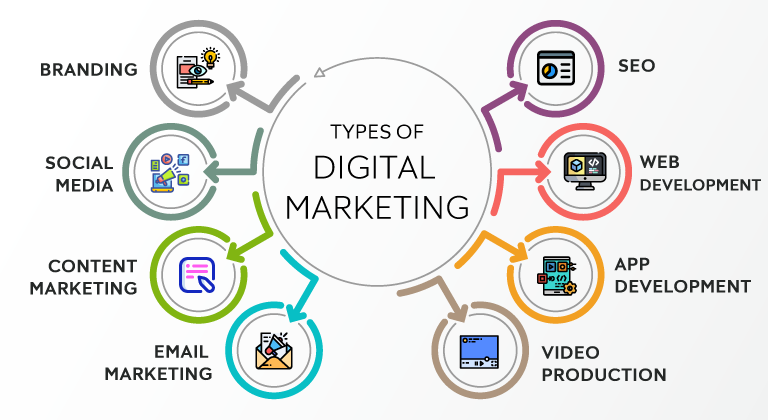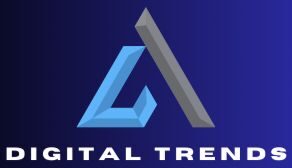What Is Digital Marketing
What Is Digital Marketing?
Some argue that Gugliemo Marconi who invented the radio in 1896, was the world’s first digital marketer. Others will say that computer engineer Ray Tomlinson should be credited with the birth of digital marketing because he sent the first-ever email in 1971

Introduction
In the rapidly evolving landscape of business and technology, the concept of marketing has undergone a paradigm shift, ushering in the era of Marketing Strategy. Digital marketing is the strategic use of digital channels, platforms, and technologies to promote products, services, or brands to a vast and diverse online audience. This modern approach has redefined the way businesses connect with consumers, shaping their interactions and transforming the marketing landscape as we know it.
Genesis of Digital Marketing
The origins of digital marketing can be traced back to the early 1990s when the internet began to gain traction as a communication and commercial tool. The first clickable web advertisement, known as a banner ad, appeared in 1993 on the website HotWired (now known as Wired.com). This marked the inception of digital advertising, setting the stage for the evolution of more sophisticated strategies.
The Dot-Com Boom and Search Engines
The late 1990s and early 2000s witnessed the dot-com boom, which catalyzed the growth of online businesses. Search engines like Yahoo! and AltaVista gained prominence during this time, giving rise to the concept of Search Engine Optimization (SEO). Businesses realized the importance of being discoverable on search engines and began optimizing their websites to improve rankings, thereby increasing visibility.
What Is Online Marketing

Social Media’s Impact
This provided marketers with new avenues for engagement, allowing them to interact with customers in real-time and on a more personal level. Social media marketing quickly gained traction as a powerful tool for building brand awareness, fostering relationships, and even generating sales.
Content Marketing
Rise of Content Marketing and Influencer Collaboration
As the digital landscape expanded, content marketing gained prominence. Valuable and relevant content became a key strategy for attracting and retaining customers. Businesses started focusing on creating high-quality articles, videos, and infographics to educate and engage their target audiences. Additionally, influencer marketing gained momentum, leveraging the popularity and credibility of individuals on social media to promote products and services.
Mobile Revolution and Personalization
The advent of smartphones and mobile apps revolutionized digital marketing once again. Marketers needed to adapt their strategies to the mobile format, optimizing websites for mobile devices and creating content that catered to on-the-go users. Furthermore, the importance of personalization grew, with businesses using data-driven insights to deliver tailored experiences to customers, enhancing engagement and conversion rates.
Data Analytics and Automation
The 2010s brought about a data revolution, where the abundance of user data allowed marketers to refine their strategies further. Data analytics provided insights into consumer behavior, preferences, and trends, enabling businesses to make informed decisions. Marketing automation tools also emerged, streamlining processes and allowing for personalized communication at scale.
The Present and Beyond
Digital marketing continues to evolve, with artificial intelligence (AI), virtual reality (VR), and augmented reality (AR) gradually becoming integral components. AI-driven algorithms optimize digital ad placements, while VR and AR offer immersive experiences for customers. Additionally, e-commerce integration has blurred the lines between marketing and sales, creating a seamless buying journey.
Conclusion
The inception of digital marketing in the early days of the internet marked a turning point in the world of business and advertising. From the humble beginnings of banner ads to the complex strategies of AI-driven marketing, the journey has been one of continuous innovation and adaptation. As Technology advances and consumer behavior evolves, digital marketing will undoubtedly remain a dynamic and essential tool for businesses seeking to connect with their audience in the digital age.



